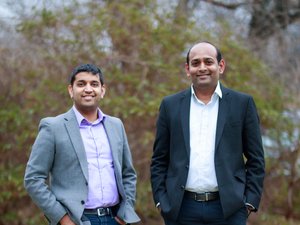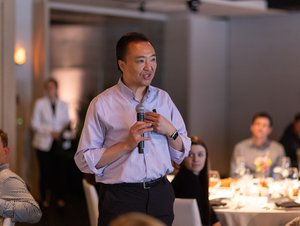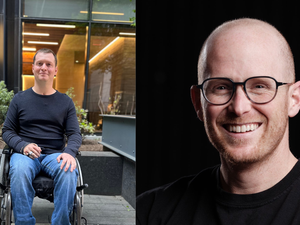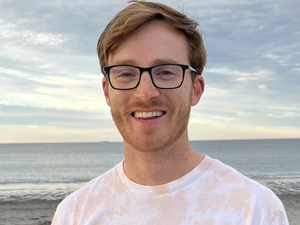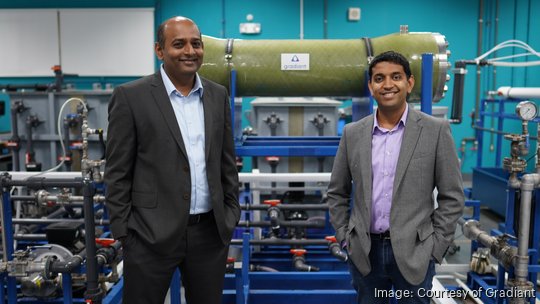
After a slow start to the year, Massachusetts has finally seen a new unicorn emerge.
Gradiant, a company that develops tech systems to clean and recycle industrial wastewater, announced Wednesday that it raised $225 million led by BoltRock Holdings and Centaurus Capital, becoming a unicorn after its valuation reached $1 billion.
The Woburn-based company has raised over $400 million since it was incorporated in 2012 by MIT graduates Anurag Bajpayee and Prakash Govindan.
Unicorns are a rare breed in 2023. After a couple years of record-breaking fundraising levels, venture capital dipped in the second half of 2022 and continued to fall into 2023. Massachusetts tech and biotech companies closed 46 deals worth over $50 million in the first three months of 2021 compared to 19 in that same period this year, per Pitchbook data. Venture capitalists told the Business Journal they expect this environment to last through this year.
By our count, Boston-based Asimov is the only other Massachusetts company to achieve unicorn status this year.
Bajpayee, CEO of the cleantech company, said the “criticality” of the water industry and the industries they serve, including semiconductor and critical mineral companies, helped Gradiant raise this large funding round in a challenging environment.
“Not the best market”
Gradiant’s last fundraising took place during those years of record-high funding numbers. The company announced it raised over $100 million in 2021. At the time, Govindan said they anticipated this would be their “last private placement” before looking at going public.
In an interview with BostInno this week, Bajpayee said they’re seeing that it’s “not the best market out there to raise money, whether it’s for IPOs or private financing at any stage…it’s a challenging environment.”
The CEO said they’re focused on helping the company grow, not on what’s next in terms of raising money or exits.
“As the business is growing, the business needs the money to grow,” Bajpayee said. “And whether it comes from private or public offering kind of doesn’t matter, as long as we ensure that we have the capital to do what we need to do."
Serving critical industries
Bajpayee said he believes the “criticality” of the water industry allowed Gradiant to secure this new funding.
Gradiant creates and operates water treatment technologies for companies that produce highly contaminated industrial wastewater, including clients working in semiconductors, pharmaceuticals, food and beverage, lithium and critical minerals, and renewable energy. Its customer list includes Coca-Cola, GSK and Pfizer.
“The one thing in common that they have is that all of them need water...whenever you use water you make it less usable, right? Make it less pure and more contaminated,” Bajpayee said. “We can come in and clean up that water and recycle it.”
Bajpayee said their work not only prevents contaminated water from entering the environment, but reduces customers’ dependence on public water supplies or freshwater sources that are becoming more limited.
The company employs 40 people in Massachusetts and 900 across the globe. Bajpayee said the company initially expanded in Asia because there is higher water scarcity, and it is a rapidly industrializing continent. But, because of the U.S.’s push to bring industries like semiconductors and critical minerals stateside through actions like the CHIPS Act, Gradiant is taking on more projects in the U.S.
Bajpayee said Gradiant’s revenue has doubled “practically every year” over the last five years. He said they expect to more than double again this year. The chief executive said they’ve seen this growth in part because they’re serving “essential industries” that aim to improve healthcare and reduce society’s environment footprint.
“I think having raised a very significant round at a very significant valuation speaks to the criticality of what we do,” Bajpayee said. “I think we can all agree that water, market up or down, you need to do something about water. And if we are going to be there as a society and as a planet, we need to deal with how we use and conserve and clean water.”
Sign up for The Beat, BostInno’s free daily innovation newsletter from BostInno reporter Hannah Green. See past examples here.
